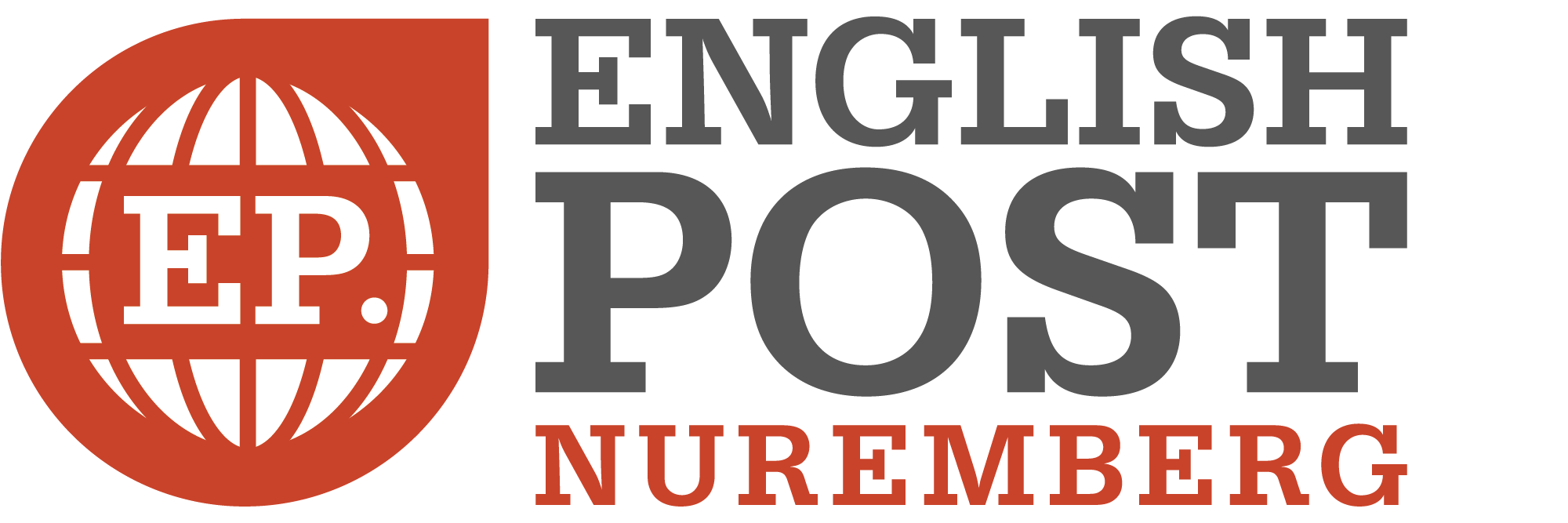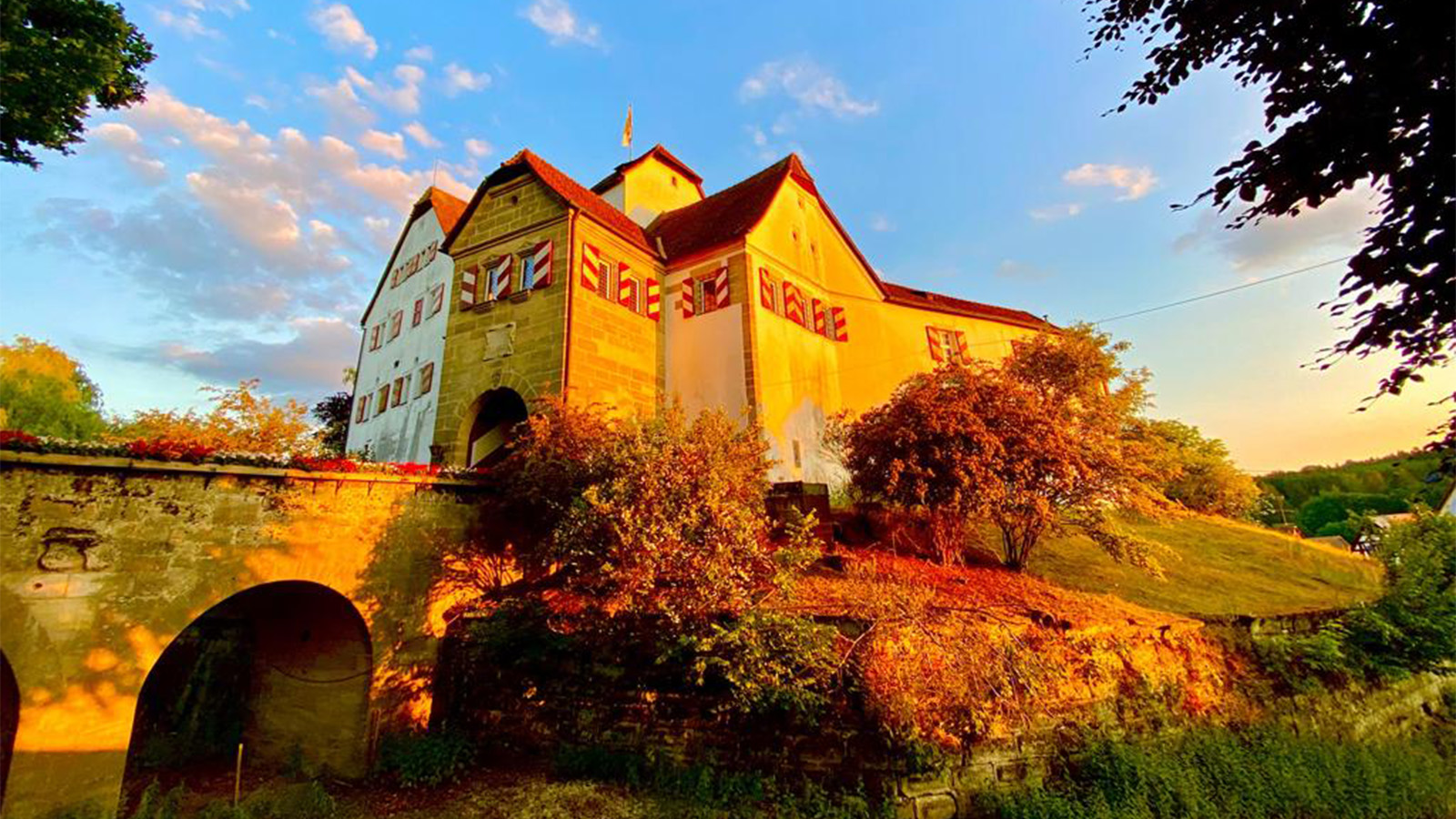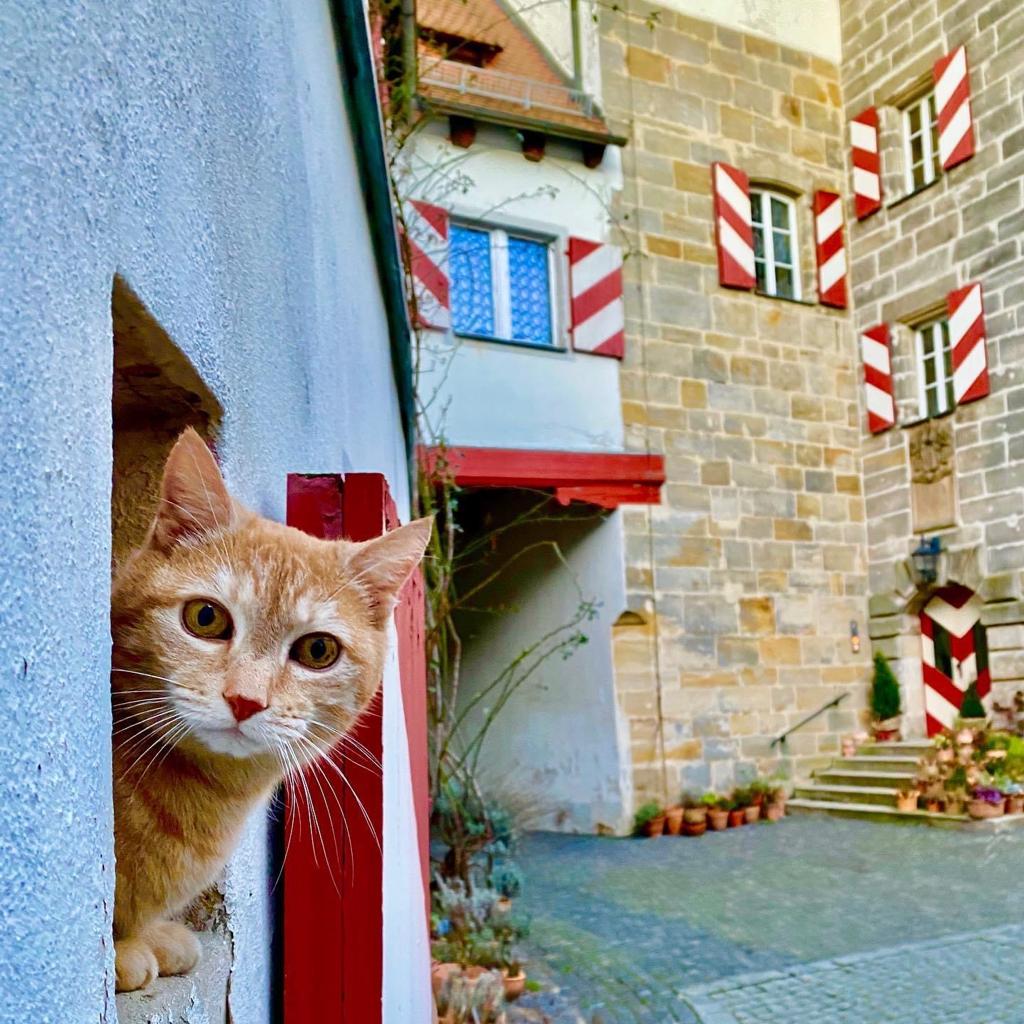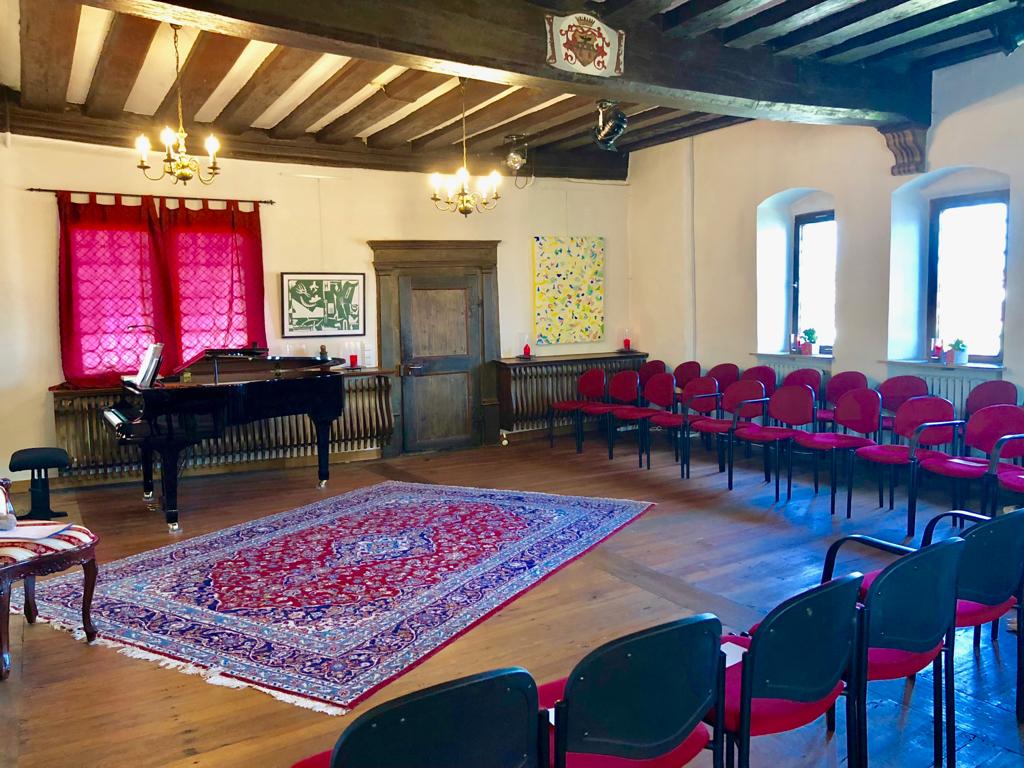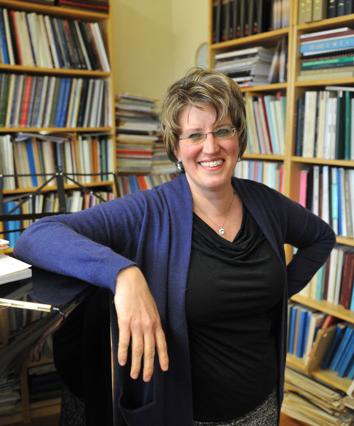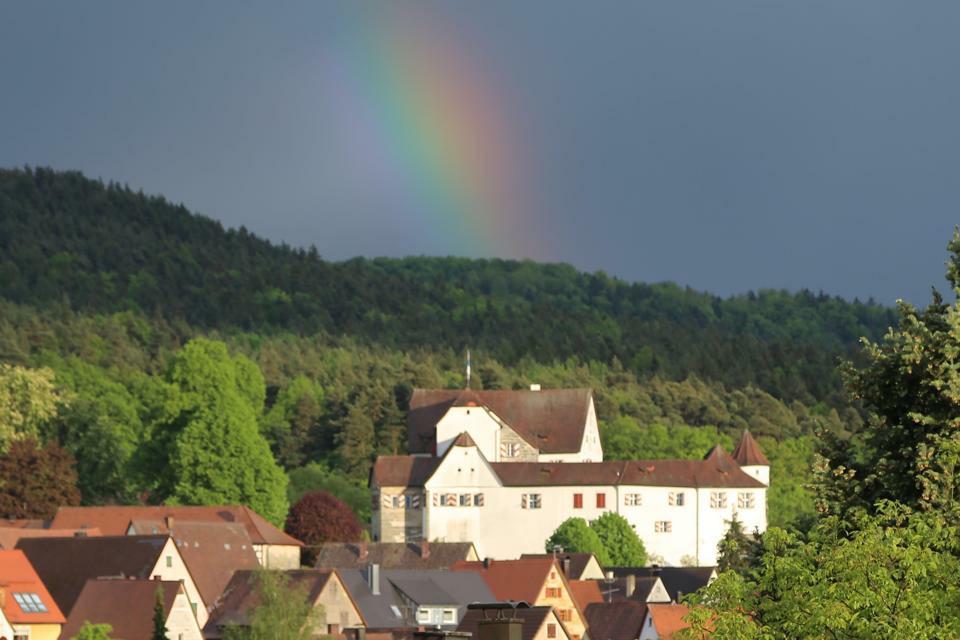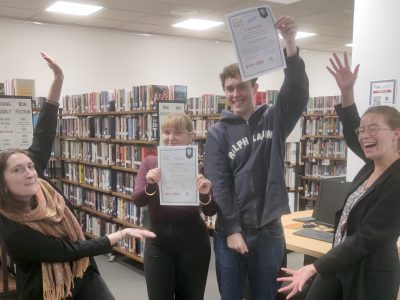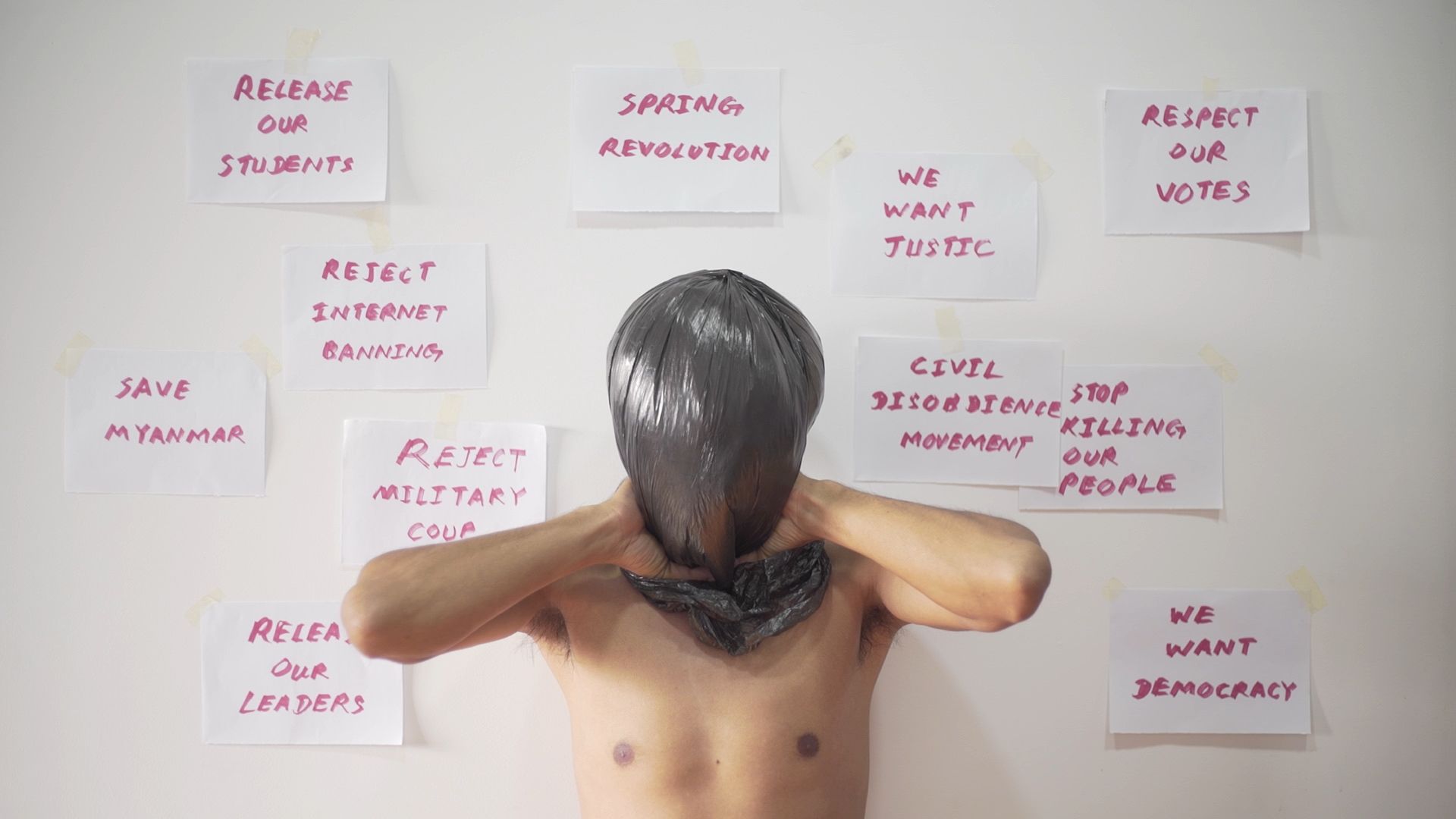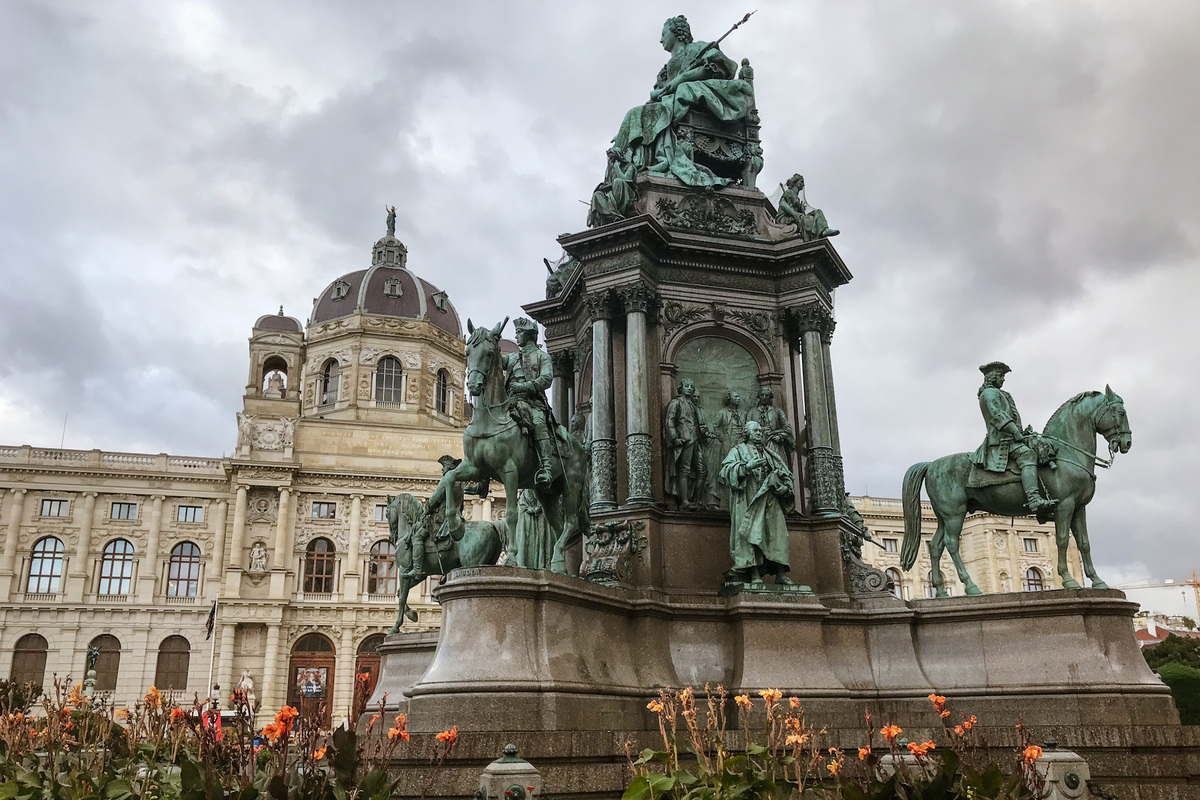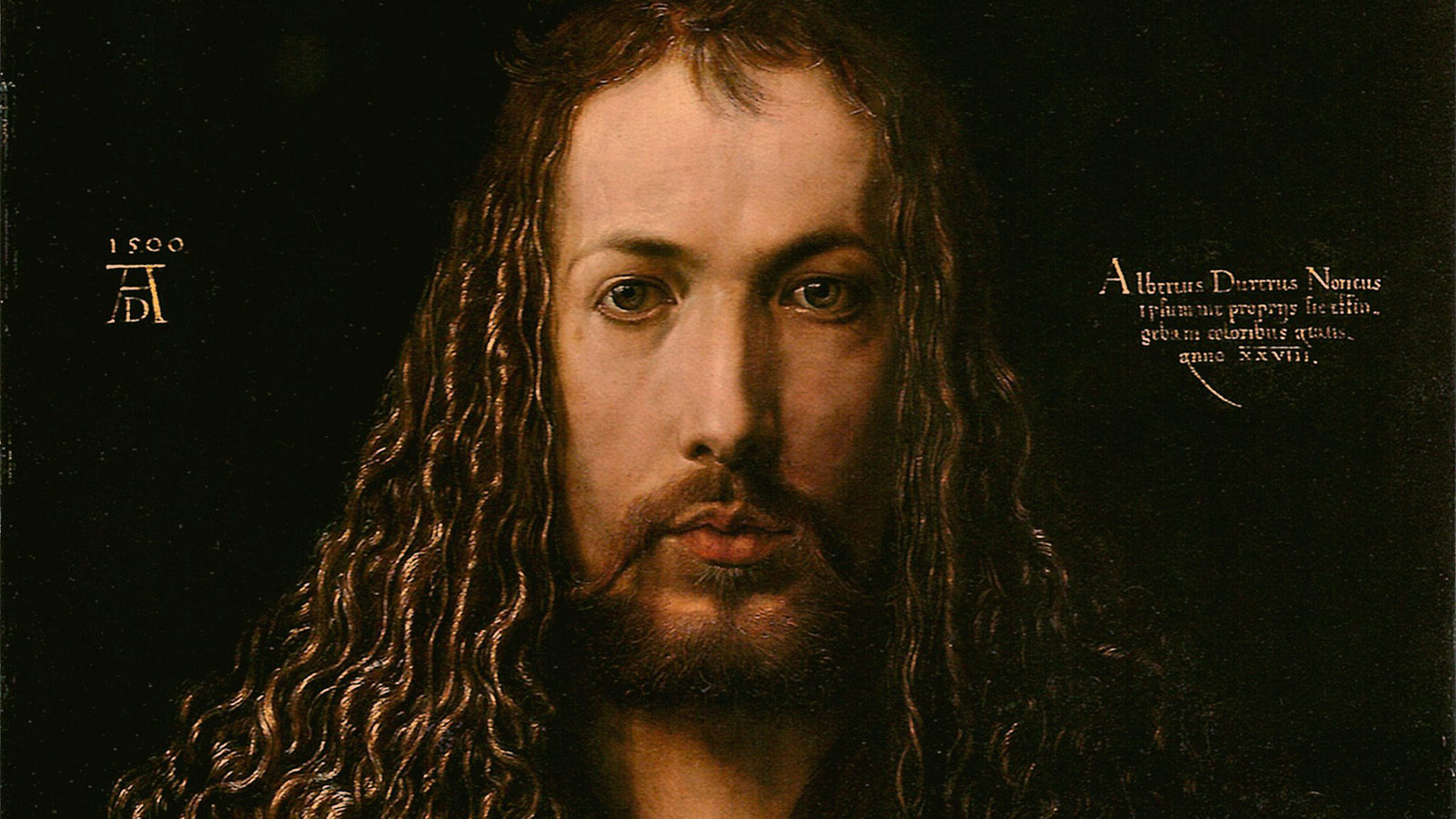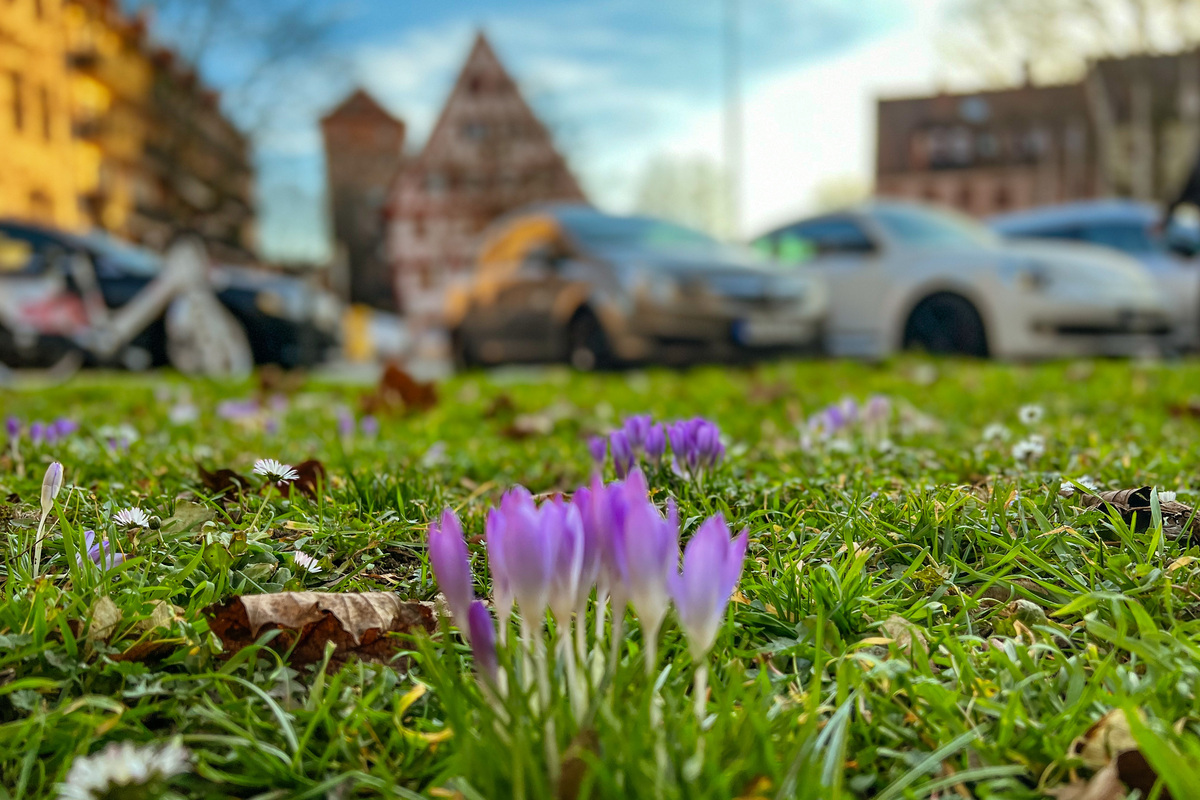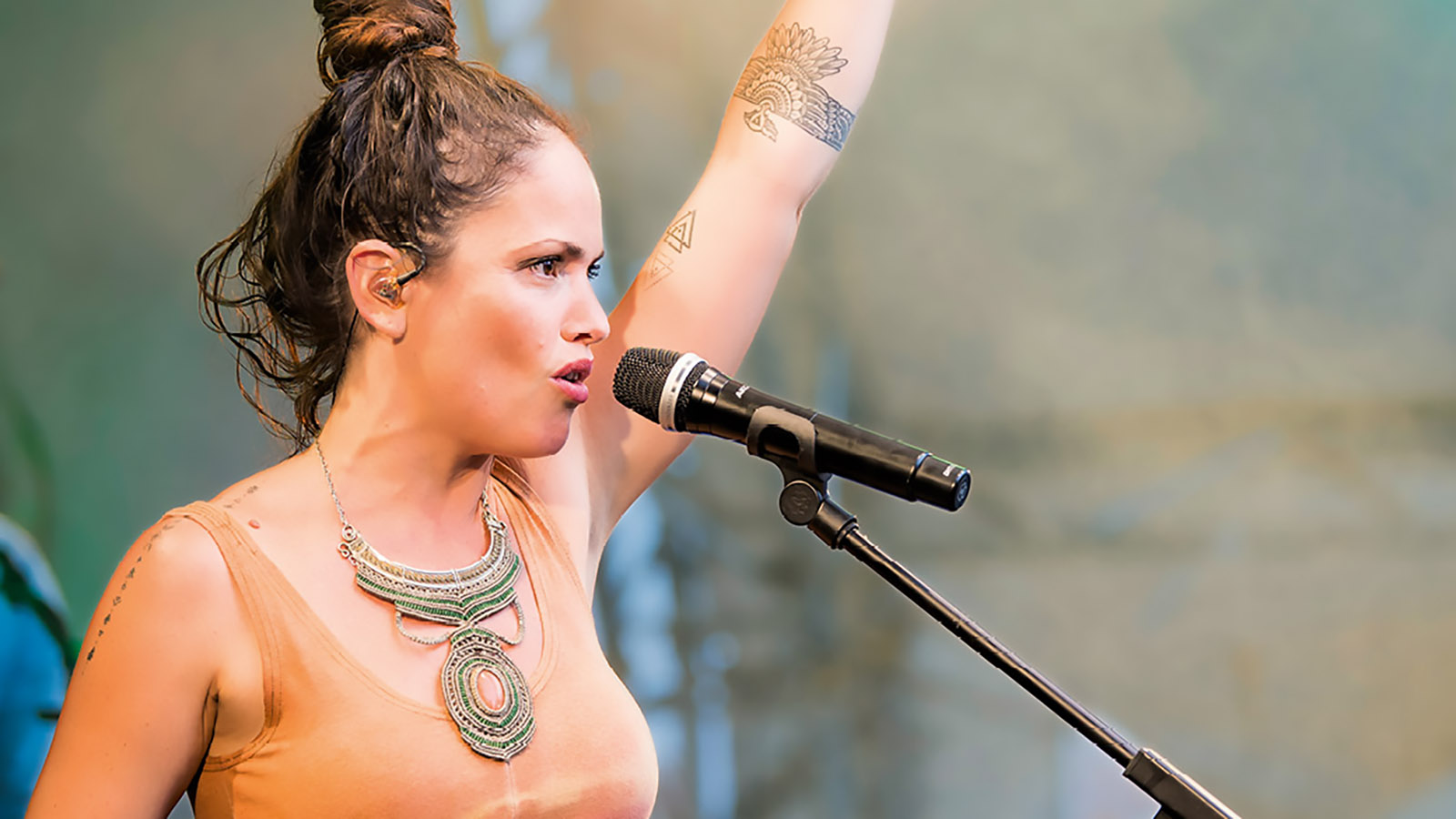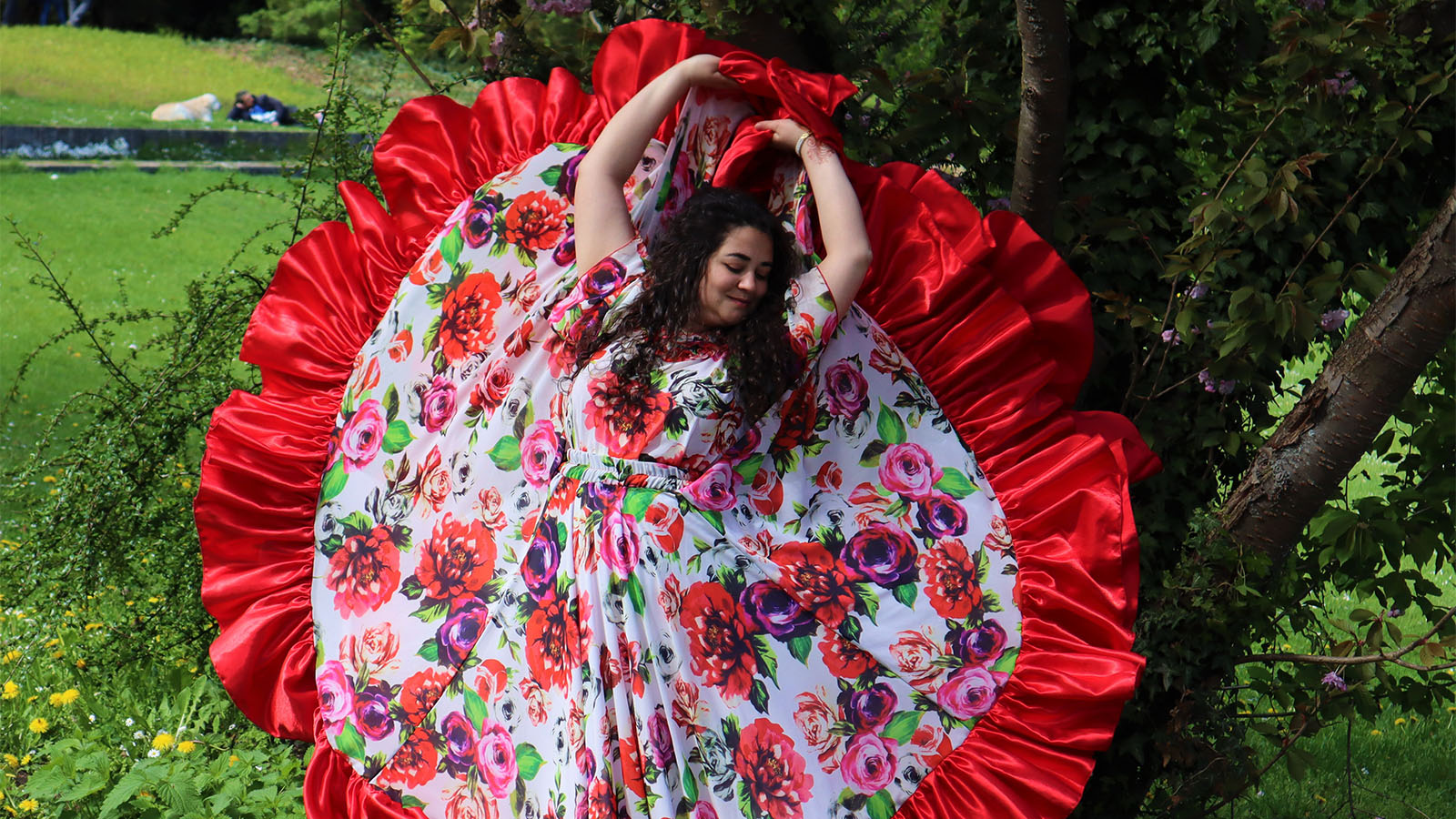Setting the scene and enjoying some performances:
Arriving for the first time at Schloss Henfenfeld on a beautiful Sunday afternoon in October 2021. I noticed a grassy moat surrounding the castle and a sheep bleating in the distance. The conspicuous red and white shutters of the window openings brazen against the solid magnificence of the stone. I entered the building up a flight of stairs covered in blooming flowers and went up to the first floor. The Schloss’ cat, Leopold, wandered around purring noisily at guests. Paintings of the previous residents of the castle adorned the walls along with a very distinguished portrait of Leopold in a suit.
Walking down the hallway, I came to a room filled with red chairs and a grand piano. The audience began to filter in and I heard the vocalists warming up in the distance. The program, written in German, cited a group of eight performers; some from Germany and others from as far away as Japan and the USA. Throughout the hour-long program, we heard pieces from operas like Romeo and Juliette, some pieces written by Tschaikovsky and Mozart, and some that I recognized as the inspiration for Disney songs. Please, forgive my lack of culture.
I was invited back in November of 2021 to see a second performance. Leopold greeted me at the entrance again and the singers arrived dressed to the nines. This time was different because it was not following a weeklong workshop as the previous performance had. Rather, this was an invitation for previous performers to come back and enjoy themselves and have another opportunity to perform.
I looked through the program and was excited to see ten performers, of which I had already met two from the previous performance. Each singer gave an incredible rendition of two to three songs. They filled the room with joy and laughter with some performances, and despair and longing for others. The final song was a lovely duet of “Meine Liebe, Deine Liebe,” by a couple from Japan who made the audience weep in adoration.
On a cold December day, I made my way back to Schloss Henfenfeld and I interviewed the Artistic Director and founder of Opernakademie, Denette Whitter, about herself, the program, and about how we, as people who are interested in keeping the arts alive, can watch the performances and be involved in keeping this incredible program going. I entered and was led to a cozy music room. The walls were lined with CDs, records, and fun posters of famous composers. A grand piano was in an area down some stairs, and we sat in an upper seating area with comfortable chairs covered in embroidered flowers. We ended up talking for almost an hour about everything from her history in the USA to how COVID has affected the arts.
Denette Whitter and the start of Opernakademie:
Denette Whitter was raised in Texas and studied in Boston. Since high school, she had worked as a vocal coach and received a bachelor’s degree in piano performance and two masters degrees in piano performance and vocal coaching. She came to Europe in 1995 as a member of the Opera Studio in Zurich, Switzerland. She stayed there for five years before moving to Germany.
Following an auction in 2004, she walked away as the owner of Schloss Henfenfeld. After growing tired of working for others, Denette decided that this was a great chance to found an opera school in Germany: Opernakademie. The school opened in 2005 with four small courses preparing students for their careers as professional opera singers.
As the school grew, so did the variety of courses she provided. Around 16-20 courses are offered per year, including an opera auditioning Bootcamp and a children’s workshop in theatre and improvisation! Each class is taught by Denette and a very carefully selected set of docents and pedagogy from around the world whose interest in student success is front and center in their teaching. She says, “Singers are the most important. It’s about them and helping them along their way.” Denette wants students to get what they pay for and not settle for less.
In addition to workshops, she also gives individual tuition to students who come from far and wide to learn from her. She teaches students at every level of learning and wants Opera to be available for everyone.
Denette also encourages people to evaluate all of their options. Opera is an incredibly difficult line of work to be in. She always asks students who are interested in becoming opera singers, “Can you imagine yourself doing anything else with your life? If you can, then do that.” She doesn’t mean it as discouragement, she says it because opera singing jobs are few and far between. She mentions that Germany really is the mecca of opera singing, with almost 80 theatres dedicated to the craft, but the ensembles are small and theatres are few. Her opera experience in Zurich was with a group of only 20 performers.
Knowing how few roles are available and how competitive the field is, the students she teaches must be open to constructive criticism and have a respectful exchange. They also must be willing and able to be spontaneous in addition to being punctual and prepared, just like in any other job. It also helps if they are excited to learn. Denette helps provide the tools for students to be successful.
Denette’s Favorites:
Coming from the USA, Denette was taught from a very young age that if you work hard enough, you can achieve anything you set your mind to. As someone from a family of American entrepreneurs, she holds the “unerring belief that everything is possible if you pull yourself up by the bootstraps. If you fall on your face, do it again until you succeed.” It’s the American Dream. Because of this, Denette makes sure that even though she is realistic with her students, she wants to provide them with the encouragement that she grew up with.
One of the biggest reasons Denette chose Germany was because she is in a creative cultural mecca by being in Europe. As an artist, being close to the history of classical music, being close to Mozart’s apartment, being close to places that are important in the history of music is inspiring!
Interested in learning more about Opera?
Without hesitation, Denette told me her favorite opera to teach is, “Marriage of Figaro. It is the single most genius piece of music in every way. From the text to the music to the characters. Perfect.” We all know the piece, but not everyone knows the story. What sets opera apart is that it’s important to know the context, because it isn’t always given within the story. That is why there is usually an Einfuhrung – an introduction- given before the opera starts.
Opera tends to be known as something to be enjoyed by the upper echelons. Newcomers may not realise that it takes work to understand what they are listening to. There is research to be done. While some schools in Germany used to teach the stories and poems of Goethe, Rüchert, and Eichendorff which allowed younger students to learn more of the history of the pieces, many have discontinued teaching those. Musical education doesn’t happen in schools the way it used to. Young students do have opportunities to watch The Magic Flute or Hansel and Gretel as they cater more towards children, and some performances are being done in more modern clothing or in a more modern context making them more interesting for today’s students. “Opera is for everybody,” and she enthusiastically adds, “Once you are bitten by the bug, it’s incurable.”
Opera and COVID
In 2021, only eight courses and the children’s workshop were taught due to COVID-19 restrictions. The government has allowed very small performances to continue; however, the capacity for the audience allowed to come to the performance, as a result of the restrictions, isn’t enough to cover costs of operations at Schloss Henfenfeld so many performances have had to be rescheduled or cancelled altogether. Since performances are still allowed the government has not provided any stipend to help keep the arts afloat.
As a result, Denette came up with a wonderful creative solution for the month of December in the form of an Advent calendar! One video of a performance done by Denette’s students has been uploaded every day to Schloss Henfenfeld’s Instagram and website for the entirety of December as a way to share the joy of singing! Classical Christmas songs have been published on the Schloss Instagram and starting on the 25th of December, we will have the opportunity to hear operetta as well!
If you, or someone you know, enjoys opera, consider donating to the Operakademie GoFundMe! The donations will cover the cost of running programs designed to inspire and teach the art of opera performances as well as operational costs for Schloss Henfenfeld. Additionally, for certain amounts donated, you can also get rewards such as a personal singing telegram all the way up to an hour-long concert done at your request!
When restrictions are lifted, performances will be scheduled and posted on Schloss Henfenfeld’s website, Facebook, Instagram and the English Post Instagram and website to encourage people from all over the world to delight in the talent of the artists of Opernakademie!
https://www.opernakademie-henfenfeld.de
https://www.facebook.com/Denetterella
https://www.instagram.com/schloss_henfenfeld/
This article is written in American English.
